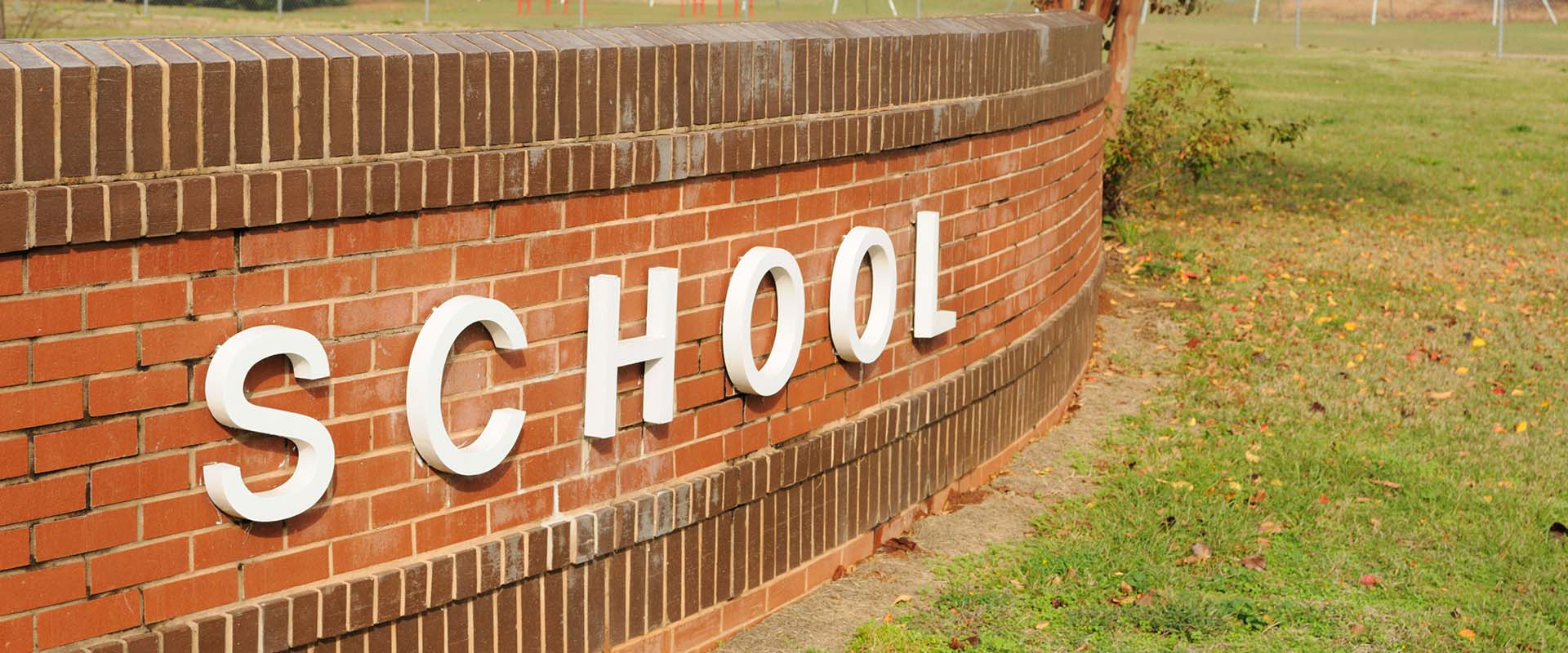New Regulations Regarding Uniform Complaint Procedures Took Effect July 1, 2020

October 20, 2020
Number 77
On July 1, 2020, new regulations went into effect regarding Uniform Complaint Procedures (UCP) found at Title 5 of the California Code of Regulations, sections 4600 through 4670[1] (Regulations). With changes to nearly every section of the Regulations, there is much information for Local Education Agencies (LEA) to digest and implement. This Client News Brief provides an overview of the changes.
Scope of Allegations
Under the new Regulations, complaints regarding special education programs can no longer be brought against LEAs as UCP complaints. Rather, complaints regarding special education programs must be brought through the existing state compliance complaint or due process procedures established by the Individuals with Disabilities Education Act (IDEA) and its implementing regulations. As part of the removal of special education complaints from the UCP process, the state legislature directed the California Department of Education (CDE) to develop new state regulations regarding CDE special education compliance complaints. These new CDE special education compliance complaint regulations appear at Sections 3200 through 3205, and provide more detail regarding (but do not significantly change) CDE’s compliance complaint procedures that already existed pursuant to federal regulations. The removal of special education program complaints from the UCP umbrella will likely not have a significant effect on LEAs, because the UCP is used less frequently than other special education complaint forums by parents of students with exceptional needs. The existing due process and compliance complaint procedures established by the IDEA are more commonly used by parents to file complaints regarding special education programs.
Despite the removal of complaints regarding special education programs from the UCP, a complaint alleging that a student was discriminated against due to his or her disability will still fall under the UCP. Therefore, when a District receives a UCP complaint regarding a student with a disability, the compliance officer must closely analyze the allegations in the complaint to determine whether the allegations fall under the purview of the UCP. An LEA may wish to consult with their legal counsel to make this determination. Additionally, if an LEA declines to process a UCP complaint because it pertains to a special education program, the LEA should be sure to provide the complainant with a copy of their Procedural Safeguards under the IDEA.
Complaints concerning child nutrition programs also can no longer be brought under the UCP, and must be addressed through the existing procedures outlined in the federal regulations and the new, related state regulations at California Code of Regulations, Title 5, Sections at 15580 through 15584.
Complaints regarding state preschool health and safety issues in LEAs exempt from licensing are now processed exclusively via the procedures set forth in sections 4690 through 4694.
Complaints regarding instructional materials, emergency or urgent facilities, conditions that pose a threat to the health or safety of pupils or staff, and teacher vacancies or misassignments (i.e. Williams Complaints) are now processed exclusively via the procedures set forth in sections 4680 through 4687.
Other than the changes above, the UCP continues to govern complaints regarding all other subjects identified in Education Code section 33315 (a)(1).
Statute of Limitations
There is now a clear statute of limitations for complaints falling within the scope of the UCP.
Complaints alleging harassment, discrimination, intimidation, or bullying by or against a student on the basis of the complainant’s protected status must be filed within six months of the date the complainant knew or should have known of the alleged conduct. The LEA can extend this deadline for 90 calendar days if there is good cause to do so.
UCP complaints containing all other types of allegations must be filed within one year of the date the complainant knew or should have known of the alleged conduct.
Who Can Bring a Complaint?
Under the new Regulations, complaints alleging discrimination, harassment, intimidation, or bullying cannot be filed by third parties. Instead, the complainant must be the direct recipient of the alleged harm, with two exceptions. First, if the complainant is a minor student, the student’s parent, guardian, or other authorized representative can file a complaint on the student’s behalf. Second, a third party may file a complaint that a class of individuals has been subjected to discrimination, harassment, intimidation, or bullying.
Investigation Report
Previous references to the “LEA Decision” are now referred to as the “LEA Investigation Report.”
Appeals to CDE
Previously, a complainant could appeal an LEA’s investigation findings to the California Department of Education (CDE) within 15 days. Now, a complainant has 30 days to appeal. This 30 days is calculated from the date of the LEA’s Investigation Report.
Whereas previously, the CDE only had 35 days to process an appeal, it now has 60 days to do so.
Notably, all references to “days” under the new Regulations means “calendar days,” unless otherwise specified.
If the CDE grants a complainant’s appeal and remands the matter back to the LEA to remedy its investigation and/or Investigation Report, upon remedying the errors identified by the CDE, the LEA must provide both the complainant and CDE with a copy of an Amended Investigation Report. The Amended Investigation Report must include a statement informing the complainant of the right to appeal the portions of the Amended Investigation Report that were not included in the LEA’s original Investigation Report.
Retroactivity
The new Regulations are not retroactive. Accordingly, they apply to any complaint filed on or after July 1, 2020.
Takeaways
For some LEAs, the new Regulations may simply be codifying practices they have implemented for a long time, while other changes are more pronounced. In either case, the new Regulations will require all LEAs to review and update their policies, procedures, and notices.
If you have any questions about the new Regulations, please contact the authors of this Client News Brief or an attorney at one of our eight offices located statewide. You can also subscribe to our podcast, follow us on Facebook, Twitter and LinkedIn or download our mobile app.
[1] All references to sections are found in Title 5 of the California Code of Regulations, unless otherwise specified.
Number 77
On July 1, 2020, new regulations went into effect regarding Uniform Complaint Procedures (UCP) found at Title 5 of the California Code of Regulations, sections 4600 through 4670[1] (Regulations). With changes to nearly every section of the Regulations, there is much information for Local Education Agencies (LEA) to digest and implement. This Client News Brief provides an overview of the changes.
Scope of Allegations
Under the new Regulations, complaints regarding special education programs can no longer be brought against LEAs as UCP complaints. Rather, complaints regarding special education programs must be brought through the existing state compliance complaint or due process procedures established by the Individuals with Disabilities Education Act (IDEA) and its implementing regulations. As part of the removal of special education complaints from the UCP process, the state legislature directed the California Department of Education (CDE) to develop new state regulations regarding CDE special education compliance complaints. These new CDE special education compliance complaint regulations appear at Sections 3200 through 3205, and provide more detail regarding (but do not significantly change) CDE’s compliance complaint procedures that already existed pursuant to federal regulations. The removal of special education program complaints from the UCP umbrella will likely not have a significant effect on LEAs, because the UCP is used less frequently than other special education complaint forums by parents of students with exceptional needs. The existing due process and compliance complaint procedures established by the IDEA are more commonly used by parents to file complaints regarding special education programs.
Despite the removal of complaints regarding special education programs from the UCP, a complaint alleging that a student was discriminated against due to his or her disability will still fall under the UCP. Therefore, when a District receives a UCP complaint regarding a student with a disability, the compliance officer must closely analyze the allegations in the complaint to determine whether the allegations fall under the purview of the UCP. An LEA may wish to consult with their legal counsel to make this determination. Additionally, if an LEA declines to process a UCP complaint because it pertains to a special education program, the LEA should be sure to provide the complainant with a copy of their Procedural Safeguards under the IDEA.
Complaints concerning child nutrition programs also can no longer be brought under the UCP, and must be addressed through the existing procedures outlined in the federal regulations and the new, related state regulations at California Code of Regulations, Title 5, Sections at 15580 through 15584.
Complaints regarding state preschool health and safety issues in LEAs exempt from licensing are now processed exclusively via the procedures set forth in sections 4690 through 4694.
Complaints regarding instructional materials, emergency or urgent facilities, conditions that pose a threat to the health or safety of pupils or staff, and teacher vacancies or misassignments (i.e. Williams Complaints) are now processed exclusively via the procedures set forth in sections 4680 through 4687.
Other than the changes above, the UCP continues to govern complaints regarding all other subjects identified in Education Code section 33315 (a)(1).
Statute of Limitations
There is now a clear statute of limitations for complaints falling within the scope of the UCP.
Complaints alleging harassment, discrimination, intimidation, or bullying by or against a student on the basis of the complainant’s protected status must be filed within six months of the date the complainant knew or should have known of the alleged conduct. The LEA can extend this deadline for 90 calendar days if there is good cause to do so.
UCP complaints containing all other types of allegations must be filed within one year of the date the complainant knew or should have known of the alleged conduct.
Who Can Bring a Complaint?
Under the new Regulations, complaints alleging discrimination, harassment, intimidation, or bullying cannot be filed by third parties. Instead, the complainant must be the direct recipient of the alleged harm, with two exceptions. First, if the complainant is a minor student, the student’s parent, guardian, or other authorized representative can file a complaint on the student’s behalf. Second, a third party may file a complaint that a class of individuals has been subjected to discrimination, harassment, intimidation, or bullying.
Investigation Report
Previous references to the “LEA Decision” are now referred to as the “LEA Investigation Report.”
Appeals to CDE
Previously, a complainant could appeal an LEA’s investigation findings to the California Department of Education (CDE) within 15 days. Now, a complainant has 30 days to appeal. This 30 days is calculated from the date of the LEA’s Investigation Report.
Whereas previously, the CDE only had 35 days to process an appeal, it now has 60 days to do so.
Notably, all references to “days” under the new Regulations means “calendar days,” unless otherwise specified.
If the CDE grants a complainant’s appeal and remands the matter back to the LEA to remedy its investigation and/or Investigation Report, upon remedying the errors identified by the CDE, the LEA must provide both the complainant and CDE with a copy of an Amended Investigation Report. The Amended Investigation Report must include a statement informing the complainant of the right to appeal the portions of the Amended Investigation Report that were not included in the LEA’s original Investigation Report.
Retroactivity
The new Regulations are not retroactive. Accordingly, they apply to any complaint filed on or after July 1, 2020.
Takeaways
For some LEAs, the new Regulations may simply be codifying practices they have implemented for a long time, while other changes are more pronounced. In either case, the new Regulations will require all LEAs to review and update their policies, procedures, and notices.
If you have any questions about the new Regulations, please contact the authors of this Client News Brief or an attorney at one of our eight offices located statewide. You can also subscribe to our podcast, follow us on Facebook, Twitter and LinkedIn or download our mobile app.
[1] All references to sections are found in Title 5 of the California Code of Regulations, unless otherwise specified.
Disclaimer: As the information contained herein is necessarily general, its application to a particular set of facts and circumstances may vary. For this reason, this News Brief does not constitute legal advice. We recommend that you consult with your counsel prior to acting on the information contained herein.







